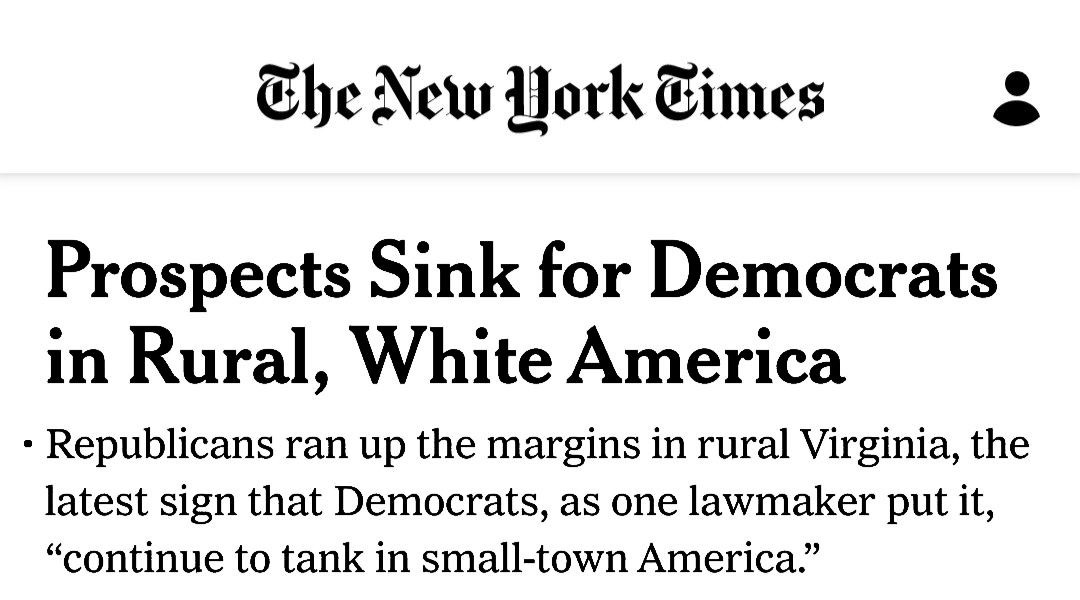I don’t expect anyone to cream their jeans over an infrastructure bill. Except for economists — Ellen Zentner of Morgan Stanley recently called infrastructure “the stuff that [economists] go to bed at night dreaming of.” Which, tragically, is probably true; most people nod off dreaming of guilt-free sex and gruesome deaths for their enemies, but economists fantasize of increasing port capacity by 15 percent.
Nobody’s going to get their face on a stamp because of an infrastructure bill. If the centerpiece of the Biden Presidential Library ends up being the Rotunda of Infrastructure, then the site will — incredibly — be too boring for Delaware. Headlines about the bill’s passage honestly did feel a bit like this:
Infrastructure investment is toenail clipping: You just need to do it sometimes. But we shouldn’t lose site of the fact that the infrastructure bill is a good thing. Nobody will think “my real income is slightly higher because of infrastructure!”, but that will be true. No one will point to a bridge and say “See that bridge — it hasn’t collapsed because of the infrastructure bill!” No dinner party guest will say “Isn’t it smashing that soy exports will be more competitive due to infrastructure?” Well, actually Ellen Zentner of Morgan Stanley might, but she’ll be an outlier.
Boring, good governance should get its due. Unfortunately, our system isn’t set up to celebrate meaningful action that has subtle, long-term effects. That’s too bad. Because the end-point of politics is supposed to be, ya know, stuff. Stuff that makes people’s lives better. And the reaction — or lack thereof — to the infrastructure bill seemed to highlight some of the ways that we undervalue tangible results.
The media skews negative. Outrage and negativity travel faster on social media than sunshine and happy thoughts. This fact, along with business models that depend on user engagement, have cause much of the media to adopt a level of pessimism normally only found in goth teenagers. That being said, a negative skew is largely unavoidable; you couldn’t expect the Titanic to have been preceded by hundreds of articles proclaiming: “Boats Doing Well!” I generally agree with Mark’s response to Nancy’s “what about all the buses that didn’t crash?” question here:
Still, it seemed notable how quickly much of the media moved on from the infrastructure bill. Let’s recall that Washington has been talking about this bill for about a decade, and it was a campaign issue in 2016, and one reason Biden got elected was that he promised to deliver things that Trump couldn’t. And yet, less than 24 hours after the bill passed, this was the headline in the New York Times:
“Okay: We did half of a day on one of the biggest policy outcomes of the past several years — now back to horserace politics as viewed through the prism of race!”
I’m being a bit harsh on the New York Times; horserace politics matter, and I write about them, too. But it seemed like an awfully quick change in focus. Maybe I would have rolled my eyes less if it wasn’t yet another article trying to glean something by talking to randos in diners. What’s the New-York-Times-reporter-to-actual-customer ratio in a typical diner after election day? Two to one? Eight to one? I picture a construction worker walking into the Waffle Hovel in East Pumpkinhump on a Wednesday in early November, and Michael Barbaro’s there, and so is David Leonhardt, and the whole “The Argument” team has the good booth by the window, and the guy thinks “Shit — I’d better get to Bob Evans!” But as he turns to leave, he sees an NPR van pull into the Bob Evans parking lot and he knows that he’s fucked.
The obsession with which party is in power makes it easy to lose sight of the fact that power is supposed to be a means to an end, not an end in itself. And we can see what a group that has lost sight of this North Star entirely looks like by looking at the Republican Party. The Republican policy agenda is basically just “OWN THE LIBS!!!” The GOP won a trifecta in 2017, and their two policy initiatives were: 1) An unpopular, debt-financed corporate tax cut during a period of economic growth; and 2) An Obamacare repeal that many knew would be a disaster, but few had the balls to vote against, so they ended depending on a dying man to bail them out. The GOP didn’t even bother to write a party platform in 2020. The policy apparatus in the GOP is like the toilet in the International Space Station: There is one, but it’s obviously a very small part of what the whole thing is about.
The conservative reaction to the infrastructure bill shows once again that, for many Republicans, power is the priority and policy is an afterthought. Republicans very recently claimed to want an infrastructure bill. The Chamber of Commerce has been pushing it. Conservative thinks thanks are favorable to the concept. And who among us could forget Infrastructure Week — oh what a seven days of gaiety and frivolity that was! The libations! The flummery! ‘Tis a memory that shall last a lifetime!
Though infrastructure is something Republicans recently wanted, most turned against it rather than give Democrats a win. Of course, 19 Republicans in the Senate and 13 in the House voted for the bill, and they should get credit for that. But their reward has been excoriation by large swaths of the right. Predictably, Trump lashed out, calling Mitch McConnell an Old Crow, despite the fact that the world has agreed that the appropriate animal proxy for Mitch McConnell is a turtle. Philip Klein wrote a scathing op-ed in the National Review, using language that would be a tad histrionic for a North Korean speechwriter:
Biden entered this week reeling from a devastating rebuke of his presidency by voters in areas of the country thought to be reliably Democratic. He headed into the 2022 election year a wounded animal, and Republicans stood to make major gains. Now, they tossed him a life raft and allowed him to put bipartisan gloss on his radical agenda.
Every Republican who voted for this monstrosity who is not already retiring should be primaried and defeated by candidates who will actually resist the Left-wing agenda. Those who are retiring should be shamed for the rest of their lives. [my emphasis]
“They should be burned at the stake and we should take turns pissing on the ashes! Their children should be banished to the steppes to be preyed on by beasts! Their possessions should be smashed, their homes razed, their house pets strapped to a missile that is shot into space!”
Jesus, Philip Klein, get a grip. It’s an infrastructure bill.
But, of course, to those in his mindset, it’s not an infrastructure bill: It’s yet another loyalty test in a never-ending series of loyalty tests. Anyone with a less-than-perfect record is impure and needs to be purged.
Obviously, the idea that politics is a forever war whose singular purpose is to vanquish the enemy isn’t limited to the right. Many on the left are similarly disinterested in actual results. Furthermore, a brand of politics has become fashionable on the left that seems to be more about gaining peer group approval than solving problems. This style of politics was scolded in a New York Times op-ed this week by Nekima Levy Armstrong, an advocate for police reform in Minneapolis. Levy Armstrong calls for a long list of practical-sounding reforms like reducing low-level traffic stops and creating an early-warning system to flag problem officers. She also criticizes a recently-defeated measure that would have replaced the Minneapolis Police Department with a new Department of Public Safety, which some semi-accurately shorthanded as the “defund the police” measure. She writes:
Supporters of the measure held no public hearings about it and made little effort to listen to Black residents’ concerns or the opinions of experts. The main issue that many Black people were worried about — the significant increase in gun violence, carjackings and homicides here in the past year or so — was largely ignored.
…
Black voters were especially wary because the City Council members who pushed the measure had done little to rein in the Minneapolis Police Department over the years. The pledge that nine of them made to dismantle the department shortly after Mr. Floyd was killed was more about “looking” progressive to national and international audiences than about transforming policing in ways that most Black residents wanted.
Parts of the “defund” movement were about posturing. People leapt at pithy slogan instead of listening to what people wanted and working the problem in a meaningful way. A year and a half after George Floyd’s death, the changes to policing that most Black residents of Minneapolis seem to be calling for haven’t happened.
Obviously, everyone claims to be seeking real change — nobody shows up at a rally with a sign that says “I’m in it for appearances!” Still: We should keep our bullshit detectors turned on. Some people are just in it for the Instagram photo. Change tends to be slow, unsatisfying, and highly unsexy — it’s the type of process in which an infrastructure bill seems like a major win. I think we should respect people who commit themselves to that process and avoid giving back-pats to people who traffic in cheap, empty posturing.
If the infrastructure bill ends up being Biden’s signature accomplishment, that will be a letdown. Though, for the record: I don’t give a fuck if he’s “the new FDR”. There’s so much progressive angst over Biden not being the new FDR, as if it was remotely possible for him to be the new FDR (and minus the “putting Japanese people in camps” part, right?). FDR took office in the third year of a depression so big that we call it The GREAT Depression even though there’s no Ordinary Depression to distinguish it from — you just have to get the word “great” in there! Roosevelt won 89 percent of the Electoral College, and Democrats won 60 percent of the Senate and 73 percent of the House. Joe Manchin hadn’t been born, and Kyrstyn Synyma hadn’t been summoned by a shaman to sew discord and chaos.
Joe Biden won’t be FDR. We’re probably not living in some cool, transformative epoch that our grandkids will ask us about. That’s fine with me; I honestly expect video games to be so amazing by the time I have grandkids that they’ll probably never speak to me. And I’m old and jaded enough to understand the game here: It’s about affecting positive change where you can, when you can. Today, there’s an infrastructure bill. And that’s a good thing.
***POLL FOR NEXT WEEK***
I'd like the next column to be about...
1. Why narratives are so powerful in shaping how we see the world [VOTE FOR THIS]
2. The tradeoff between simplicity and precision in the design of social spending programs [VOTE FOR THIS]
3. Are we even capable of defending Taiwan? [VOTE FOR THIS]








Enjoy your stuff Jeff but I don’t agree this is a good thing for a very simple reason: the incentives are almost nonexistent for government to do anything effectively and efficiently.
Government puts taxpayers money at risk and spends it on other people, which creates all sorts of incentives for cronyism. And there’s no real time system of feedback to whether the program is actually producing the results proponents say it is and no way to starve bad ideas from resources (the war on drugs, war on poverty, IRS, VA, Pentagon etc come to mind as bad ideas/bureaucracy’s that are virtually impossible to stop). There are no rewards or consequences for the spending regardless of what happens. The people spending the money have no skin in the game and really don’t answer to anyone or anything except the possibility of being voted out of office. How well has that worked?
Compare this scenario with the private sector. Everything is the opposite. I’d have to risk my own resources and/or convince a bank/venture capitalist to do the same for an idea. Everyone has skin in the game. Consumers get to vote with their own resources and preferences based what each of them want and not what a politician wants. I’m rewarded if I’m effective and efficient in producing what society wants or I’m quickly put out of business if I don’t.
As most economists say, incentives matter. I’d say they matter more than anything.
Agree with your premise, but challenge the assertion that if the infrastructure bill is all Biden gets done, it will be a let down.
In my view, we need to re-establish responsibility and accountability in our political culture, like pronto.
Is Biden responsible for every Democrat in this "big tent" party that includes factions inside that are rage-tweeting against each other? Nope. That's not a realistic expectation.
What *is* a realistic expectation is that he can create a strong sense of unified purpose that leads his party to pass his legislation. Is Biden doing this well? The jury's is out. He's trying. And maybe the behind-the-scenes trying ends up being less fulfilling than DJT's brazen PR stunts, but if it ends up working, then we should not be seduced by PR vs. what may end up being operational excellence.
I will not be let down if nothing else passes. Biden has already pulled 1/2 of all American children out of poverty for crying out loud (via his first bi-partisan win in COVID relief), and now he's successfully pushed through re-investing in American infrastructure like no other President in recent memory.
Does this make Biden a "great" POTUS? Nah. But it's better than many expected, and I think that should be celebrated PR'd to death DJT-style. But it won't - that's just not the Democratic way.
On the same token, if Biden passed what he initially was shooting for in his BBB proposal (when it was $3.5T), he may have actually sunk himself accidentally by falling over the progressive waterfall with 12% of the electorate. Yes, I think the moderate democrats are actually saving Biden from his left flank, as well as his own newly-found beliefs that the prescription to pull back angry white voters to the Democratic tent is embracing Bernie's platform.
But here's the problem: You can't win with Bernie's platform without Bernie at the helm. That's just not how things work. The brand and personal charisma and the policy need to match.
This is why, in my view, the Infrastructure Bill passed - it had Buttigieg as the primary spokesperson and figurehead of the bill. Mayor Pete has the charisma and the orientation that matches the infrastructure bill perfectly.
We should never be surprised that when the right charisma and the right policy combine, it's a powerful force that no political scientist is equipped to properly measure.